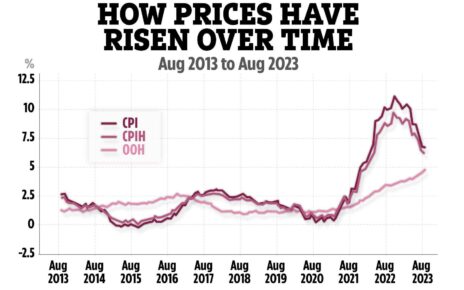Save articles for later
Add articles to your saved list and come back to them any time.
The Yoorrook Justice Commission wants the Victorian government to make it easier and cheaper for people to seek compensation for human rights abuses by allowing them to take their claims to the Victorian Civil and Administrative Tribunal (VCAT).
Australia’s first truth-telling commission this week tabled its report on the failures and injustices in the state’s criminal justice and child protection systems for Aboriginal Victorians.
The Yoorrook Justice Commission’s report was tabled this week.Credit: Yoorrook Justice Commission.
A key recommendation was to strengthen the state’s Charter of Human Rights after advocates argued it is too difficult to use it to stop breaches, claim redress and address key issues for First Peoples.
Under the current rules, Victorians who had their human rights breached by a public authority, such as a government body, can complain to the Victorian Ombudsman – but there is no obligation to follow any recommendations that come from an investigation.
If a person wants to take legal action, there is no direct way to do so and claims have to “piggyback” onto other court cases against these authorities.
In 2015, an independent review of the charter said it should be strengthened and allow ordinary Victorians to take their cases for human rights abuses to VCAT for compensation or redress.
VCAT is considered a more affordable and accessible way to interact with the courts.
The Andrews government said it would consider the advice but, eight years later, has not implemented the proposal.
Yoorrook’s report into the child protection and criminal justice system this week called on the state government to act on these changes – and to consult First Nations people in drafting the laws.
“Victoria’s Charter was introduced around 17 years ago. Changes to clarify and strengthen its operation are well overdue,” the commission said in its report.
The Victorian Equal Opportunity and Human Rights Commission on its website supports strengthening the charter, including allowing people to take their cases to VCAT.
Victorian Aboriginal Legal Service chief executive Nerita Waight said strengthening human rights in Victoria was the least the state could do.
“We’ve been able to use the charter in a few cases, like when the Victorian government put Aboriginal children in an adult prison, but the potential of the charter has not been realised because it is hard to utilise,” she said.
”Generally, if you want to exercise charter rights, you need to piggyback off judicial review grounds.”
Waight said the inquest into the death of Indigenous woman Veronica Nelson had shown instances where her rights were breached on multiple occasions by public authorities.
“That reflects a systemic issue where the charter really is not driving enough cultural change at the moment because it is so hard to bring an action if you think your human rights have been breached,” she said.
“For example, the Victorian Ombudsman was able to conclude that the government breached the human rights of people living in public housing towers in Flemington and North Melbourne when they were locked down without notice, but that was months after the fact.
“A standalone action clause in the charter would have allowed for real-time action to end the lockdown sooner.”
Responding to the report, Premier Daniel Andrews said on Tuesday it was a “very important document” and his government was proud to have set up the truth-telling commission.
However, he said the 12-month timeline for Yoorrook’s most urgent proposals was ambitious.
“That is not a criticism. I think we all need to push each other to do more and do better,” he said.
“What I’m not, however, going to do is necessarily sign up to that 12 months because I don’t know that that can be delivered.”
Premier Daniel Andrews will now consider the Yoorrook Justice Commission’s first report.Credit: Jason South
Andrews said significant reforms would take time and he would not make immediate commitments on individual recommendations.
He said cabinet would consider the report, with advice from departments, and work through each finding and recommendation and report their progress.
Andrews said his government had a strong track record because it was in the process of implementing all the findings of royal commissions into mental health and family violence.
Victorian Equal Opportunity and Human Rights Commissioner Ro Allen said the report provided an important opportunity to strengthen human rights protections for First Nations people.
Victorian Equal Opportunity and Human Rights Commissioner Ro Allen.Credit: Wayne Taylor
“If implemented, these reforms will help embed cultural competency in the child protection, corrections, youth justice, policing and mental health systems.”
Victorian Law Reform Commission chair Anthony North, KC, said many of the report’s recommendations overlapped with proposals included in its 2023 Law Reform suggestions last month.
North said the VLRC was “well-placed” to consider the challenges for enabling full self-determination for First Peoples in Victoria’s criminal justice and youth justice system, as recommended in the report.
Law Institute of Victoria president Tania Wolff also welcomed the report, noting many of the most urgent recommendations reflected those made in the institute’s submission to the inquiry last year.
“A clear path to redressing those injustices begins with implementing the recommendations laid out
in the Commission’s report. We urge the government to act without delay,” she said.
The report’s recommendations strongly asserted greater self-determination for First Peoples within the criminal justice and child protection systems, which could include expanding the Koori Court to cover issues including bail and diversion.
This would prioritise and centre Aboriginal communities in decisions about cautioning, diversion and supervision of diversion plans, along with supervision of community-based sentences, and see First Peoples transitioning out of adult and youth prisons doing so through Aboriginal-controlled programs.
Waight, a Yorta Yorta and Narrandjeri woman, said Victorians should not fear self-determination and highlighted good examples in other countries.
“Canada and Aotearoa [New Zealand] are both much further down the path towards self-determination and the sky has not fallen in.”
The Morning Edition newsletter is our guide to the day’s most important and interesting stories, analysis and insights. Sign up here.
Most Viewed in Politics
From our partners
Source: Read Full Article





